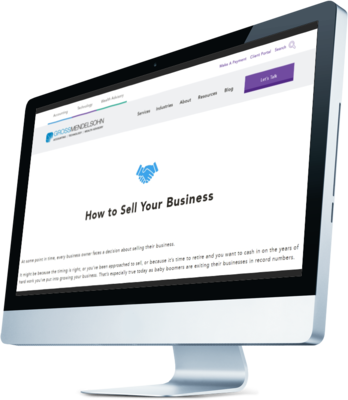Frankly, it was a disaster that could have been avoided.
“Stan” the buyer was hell bent on making the purchase, the bank was pushing for the seller’s financials, and on the surface the deal and the business looked solid. So instead of a comprehensive and insightful due diligence process, all Stan wanted was a rubber stamp from the lawyers and accountants that would trigger the loan.
He got the rubber stamp and a bit more in the way of an unexpected surprise — the buyer misrepresented the business’ sales figures and after the purchase, Stan had to spend a significant amount of time, money and energy to build the business to a point of profitability. If he had allowed the due diligence effort to proceed as recommended, the sales issues would have been uncovered, the deal restructured, and Stan would have put proceeds of the business into his pockets instead of his attorney who went on a litigation frenzy.
It could have been avoided.
Why Commit to a Due Diligence Effort?
Due diligence is the process of getting information and documents that allows a buyer — and their advisory team — to do a thorough investigation of a business under consideration for purchase. Essentially, due diligence is a fact finding mission that occurs after a letter of intent between buyer and seller is signed, but before any binding commitment is made to make the purchase.
We recommend that buyers gather the following documents and information:
-
Financial statements for the last 3-5 years
-
Income tax returns for the last 3-5 years
-
Sales history by customer and product line for the last 3-5 years
-
Employee data and census, including employment agreements
-
Bios of key employees
-
Employee benefit plan agreements
-
Inventory of property and equipment
-
All material contracts and agreements
-
Regulatory compliance documents
-
Product warranties and liabilities
-
Pending or threatened legislation
Due diligence is a “gotta have” for buyers, regardless of the scope or size of the purchase.
So, why commit the time, energy and resources to due diligence?
The point of due diligence is basically to give buyers the ability to evaluate financial and non-financial aspects of the target business, identify potential risks, identify potential benefits and ultimately to decide whether to do the deal.
Look Out for These Red Flags
Not every deal is the right deal, so when should you leave the table — or try to adjust the terms of the deal? Here are five red flags that indicate the deal you thought was so sweet, may be a lot more sour once you do a deeper dive on the documents:
-
Significant fluctuations in sales, loss of major customers or high turnover of customers
-
A loss of key employees
-
Financial ratios and results that differ considerably from expectations and industry benchmarks
-
A history of declining margins
-
Questionable character or integrity of the seller
Who Should Be On Your Due Diligence Team?
In addition to you and your key employees, you’ll want an attorney and a CPA on your team. Some buyers also employ industry consultants, or other niche professionals like environmental consultants or engineers. These professionals will (or should) have the experience and expertise to give you the guidance you’ll need as you move through the process, as well as the ability to review, analyze and report on the seller’s financial data and various non-financial aspects such as regulatory compliance, employee considerations and potential legal issues.
This is not a process that should be rushed or treated lightly, as it can lead to troubles and headaches from unpleasant “surprises” that could have been identified with an effective team and process.
Need Help?
Gross Mendelsohn can help with your due diligence by evaluating the seller’s documentation, providing a business valuation and considering tax issues.
Contact us online or call 800.899.4623.
This article was originally published in October 2014 and was updated in May 2024.


